Some years ago now we asked which were the most difficult subjects at GCSE.
This wasn’t a question we could actually answer. But what we could do was look at whether some subjects appeared to be graded more severely (or more leniently) than others.
We subsequently followed this up again in 2019 and 2023.
Whenever we have done this, it has always been the case that modern foreign languages (MFL) and computer science were being graded more severely than other subjects.
We dust off the code again and run it on the 2024 Key Stage 4 data.
Data
We use unamended Key Stage 4 data for 2024 for pupils on roll in state-funded mainstream and special schools.
This contains results in all approved qualifications entered by pupils in GCSEs and equivalent qualifications. We restrict ourselves to just those qualifications that are in scope of Key Stage 4 performance tables.
For each pupil, we calculate their average grade in English language and maths. These are the two subjects we would expect the vast majority of pupils to enter.
Then, for each subject, we compare the grade achieved by each pupil to their average score in English and maths. Non-GCSE qualifications are allocated scores equivalent to GCSE grades for the purposes of performance tables which we use in place of grades.
Grading severity of GCSEs
The chart below shows the severity of grades in GCSEs relative to English and maths for all subjects with at least 10,000 entrants in 2024. Numbers of entrants (in thousands) are shown in brackets.
The rank order remains fairly similar to the last time we looked at this in 2023.
French, German, Spanish and computer science grades continue to be more than half a grade lower than pupils’ grades in English and maths.
Efforts were made to bring French and German grades in line with Spanish. If anything, German now seems to be (very slightly) less severely graded than Spanish. But, as we always said, Spanish was also still graded too severely.
Ofqual also reported that grading in Computer Science became more stringent between 2014 and 2019. It recommended an adjustment to grading of 2 percentage points at grade 7 (and above) and 3 percentage points at grade 4 (and above). While results did increase in the summer, it does not look like the adjustments go far enough.
We also pick up statistics and psychology this year as the number of entrants meets our threshold for inclusion. Results in these subjects also tend to be half a grade or more lower than English and maths.
By contrast, pupils who enter art and design (photography) tend to achieve half a grade or more higher than in English and maths.
Grading severity of non-GCSEs
Reformed tech awards were awarded for the first time in 2024.
The next chart shows grading severity data for the most popular tech awards. Each of the qualifications listed had at least 10 thousand entrants in 2024.
As with GCSEs, the picture is somewhat mixed. There are some tech awards in which pupils tend to achieve higher grades than they do in English language and maths, and others where they tend to achieve lower grades.
Pupils entering the BTEC in health and social care tend to achieve a grade higher than in GCSE English and maths. Results achieved in OCR National sport studies and WJEC hospitality qualification also tend to be at least a third of grade higher than GCSE English and maths.
However, not all tech awards are scored more highly than English and maths. Pupils who entered the OCR National in Creative iMedia and the OCR National in Enterprise and marketing tended to achieve half a grade lower than in GCSE English and maths.
The relationship between attainment and grading severity
There is a degree of correlation between attainment – as measured by average GCSE grade in English and maths – and grading severity, as indicated by the following chart.
English and maths attainment tends to be lower among the less severely graded subjects including BTEC health and social care and GCSE photography.
By contrast, English and maths attainment tends to be higher among pupils entered for the most severely graded subjects: French, German, Spanish and computer science.
That said, English and maths attainment is highest of all among entrants in the triple sciences, yet grades in those subjects are more in line with English and maths, albeit slightly lower on average.
Boys and girls
Next, we examine differences in grading severity in GCSEs for both boys and girls.
The MFL penalty appears even greater for boys than girls. Boys’ grades in French and Spanish are, on average, a grade lower than their average grade in English language and maths.
Girls’ grades in a range of subjects, including drama, English, media studies and religious studies, tend to be higher than their average grade in English language and maths. By contrast, boys’ grades in those subjects tend to be lower than their average grade in English language and maths.
Whereas girls’ grades in design & technology tend to be similar to their average grades in English and maths, boys’ grades tend to be lower, by almost half a grade.
This picture is (almost) reversed in physics.
Disadvantage
To finish off, we examine differences in grading severity in GCSEs for disadvantaged pupils[1] compared to their peers.
For many subjects, grading severity is similar between disadvantaged pupils and their peers but there are some notable differences.
Disadvantaged pupils tend to achieve over half a grade lower in GCSE geography and history compared to their average grades in English language and maths. Grades are also lower for non-disadvantaged pupils but by a smaller margin (between a quarter and a third of a grade).
More changes to MFL, but will grades change?
We’ve been going on about the severity of grading in MFL (and computer science for that matter) for some years now.
There are one or two caveats that we always make at this point.
Firstly, what does it mean to have a grade 4 in French? Is it the same standard as grade 4 in history? Or English language? How could we ever know for sure?
Secondly, we leave to one side the important question of whether a grade 4 really is a grade 4 and not a grade 3 or a grade 5.
Those caveats notwithstanding, action to address historic low grading in MFL is long overdue. At the very least, pupils’ grades could be brought in line with those that they achieve in geography and history.
Reformed GCSEs in MFL were rolled out last September, and the first set of results will be reported in 2026. If ever there were a time to adjust grading standards it would be then although there does not appear to be any suggestion that this will happen.
- Eligible for free school meals in the last 6 years
Want to stay up-to-date with the latest research from FFT Education Datalab? Sign up to Datalab’s mailing list to get notifications about new blogposts, or to receive the team’s half-termly newsletter.




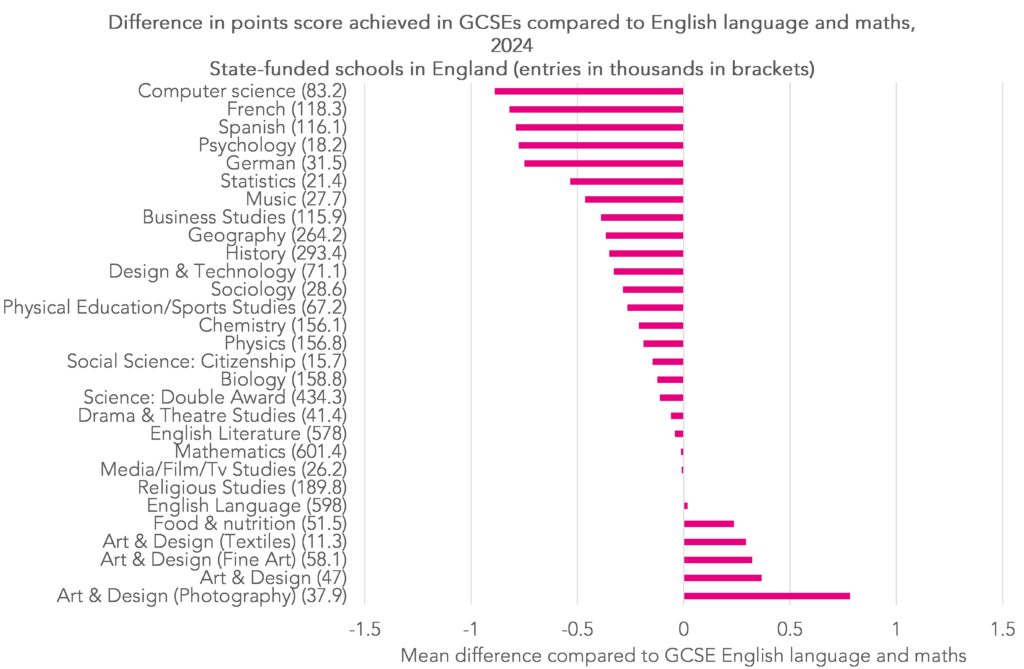
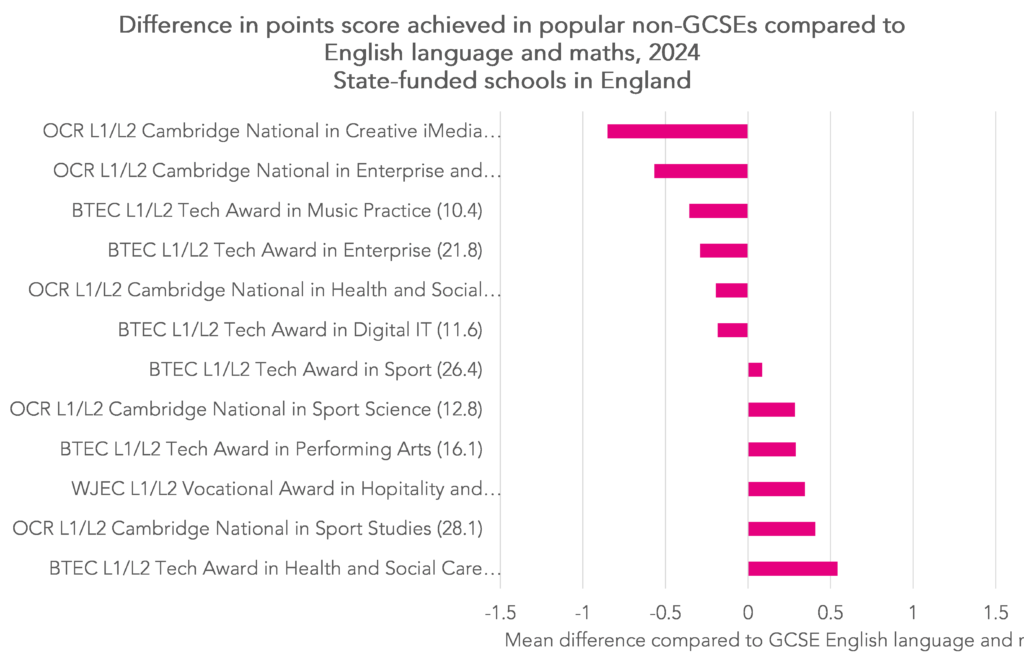
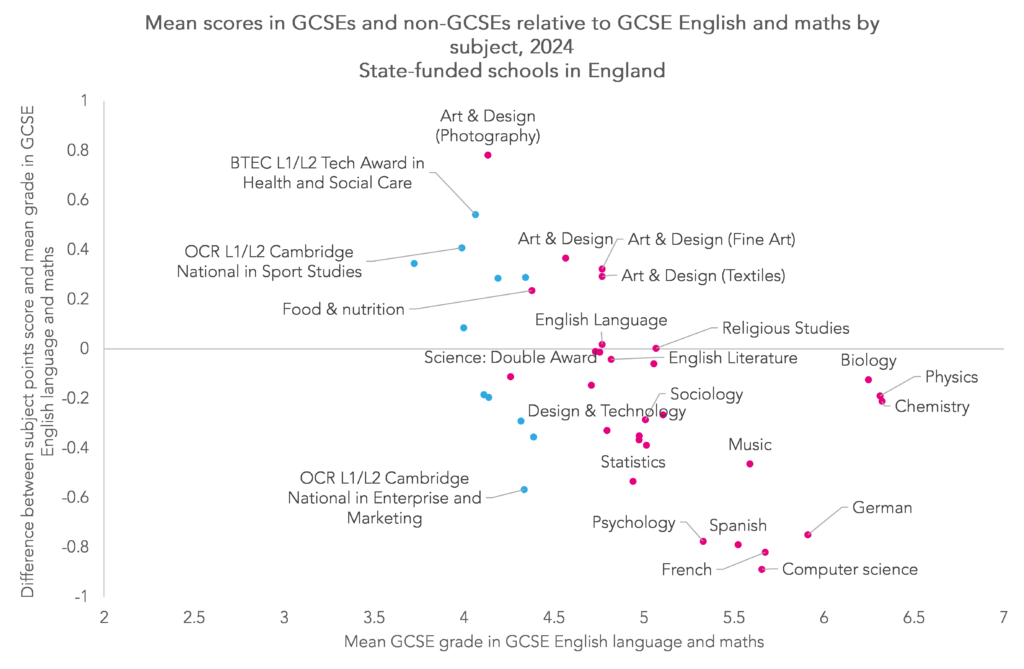
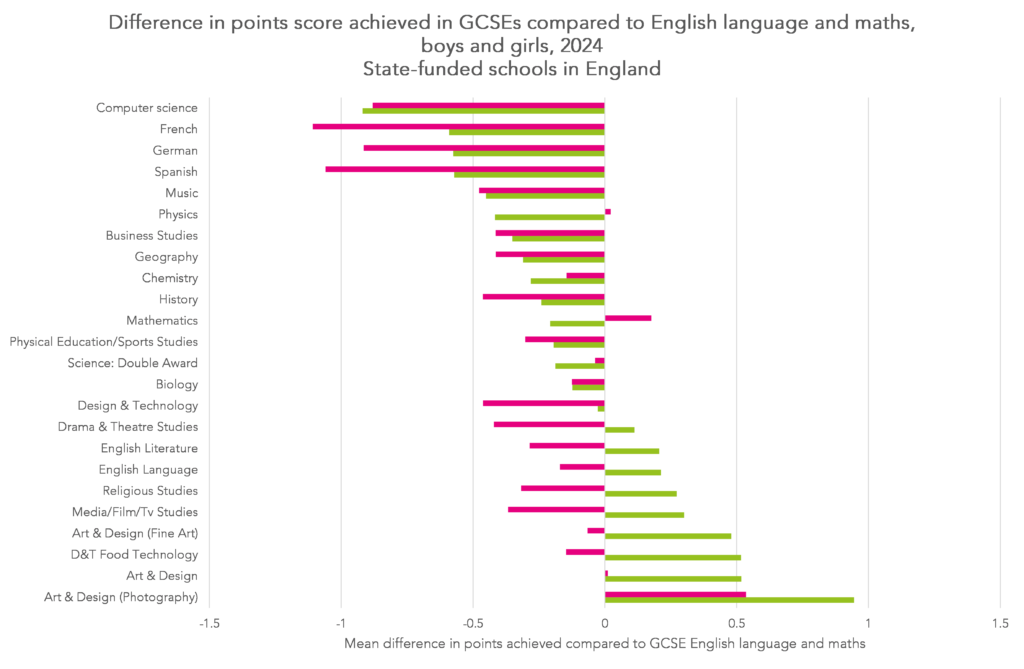
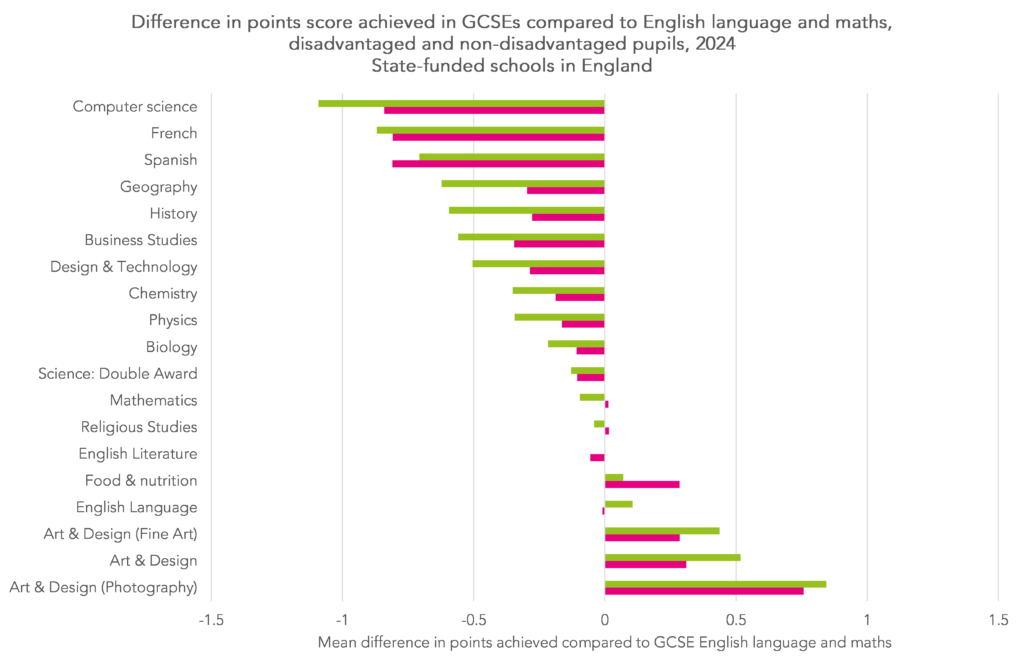
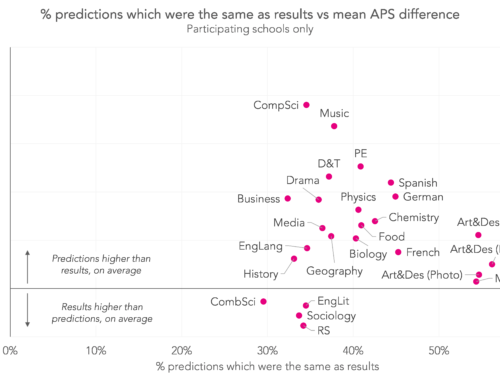

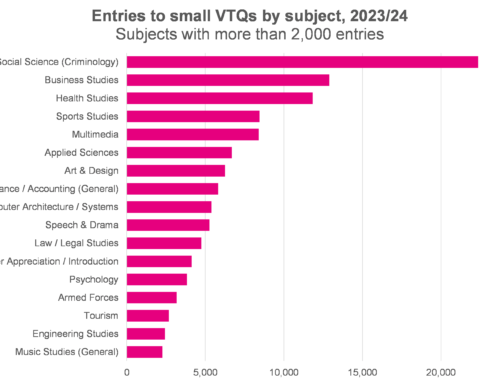
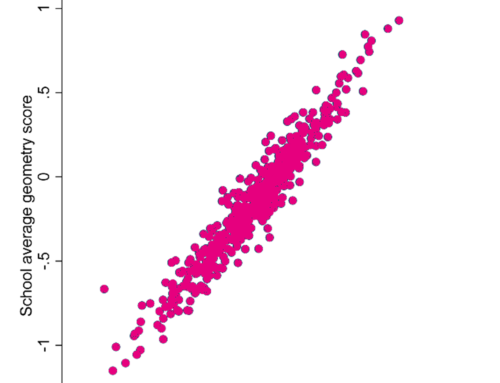
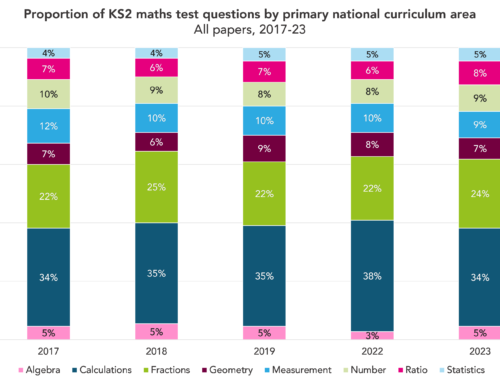
I’d like to challenge the assumption this analysis means the grading is ‘more severe’, given the enormous efforts students are expected to commit to En and Ma – and the structural, as well as de facto, drivers for that. Yesterday I was in a school giving six hours’ En and six hours’ Ma lessons to students in year 11, every week, and that’s not unusual. If similar focus were given to other subjects, might we not see higher standards of attainment?
Hi Jennie. That’s a fair comment and it does affect the question of scale (e.g. “how severely graded is GCSE German”). But I’m not sure it explains differences between (e.g.) religious studies and German.
This excellent piece of research only reiterates what teachers have been saying for years, namely that GCSE Computer Science has far too large a Specification and is pitched way too high for most pupils.
The exam boards are destroying a generation of pupils love for this subject.
You have done an excellent job here. I will should this to my management, who still think that I teach “OCR Nationals”!
To play devil’s advocate, “graded more severely” could also be potentially (a) taught less well or (b) studied by less academically inclined students, to throw in just two potentially uncontrolled variables. nonetheless, this is a really interesting piece of work. You have got me thinking!
Excellent piece of research, yet again no easy GCSE/Vocational for Computing & MFL departments also struggling with GCSE!
Maybe specifications are too big or more time is required to teach this subject GLH 120
Would be useful to see all vocationals listed in here for comparison. What this doesn’t show is the entry profile for those taking vocational qualifications. That might have a direct bearing/impact on grading severity because if the profile is on the low attainment side then this may more significantly impact their ability to access academically demanding vocationals
Very interesting piece of research but I agree with others who have pointed out that the correlation doesn’t automatically mean that these subjects have been “graded more severely”.
It is possible that because fewer hours are devoted to Computer Science at earlier Key Stages that pupils lack the grounding in the subject and are picking it up too late to reach the same academic level as the subjects which have substantially more time devoted to them.
Time on the curriculum also becomes an issue when exams loom large and pupils must choose to either revise “core” subjects or “optional” subjects.
While it may appear like “severe grading” is the cause of the disparity, it may be a more systemic issue.
More data needs feeding in to make a judgement like this I think.
Thanks Gareth. It’s an argument I’ve got some sympathy for. But I always find myself wondering whether it is possible to define standards in such a way that a grade 4 in CS is equivalent to the same standard as a grade 4 in maths, for example. Moreover, in the case of MFL the main reason I think severe grading is the more likely culprit is set out in this article https://ffteducationdatalab.org.uk/2024/04/languages-are-still-harshly-graded-at-gcse/ where the comparison is made with humanities